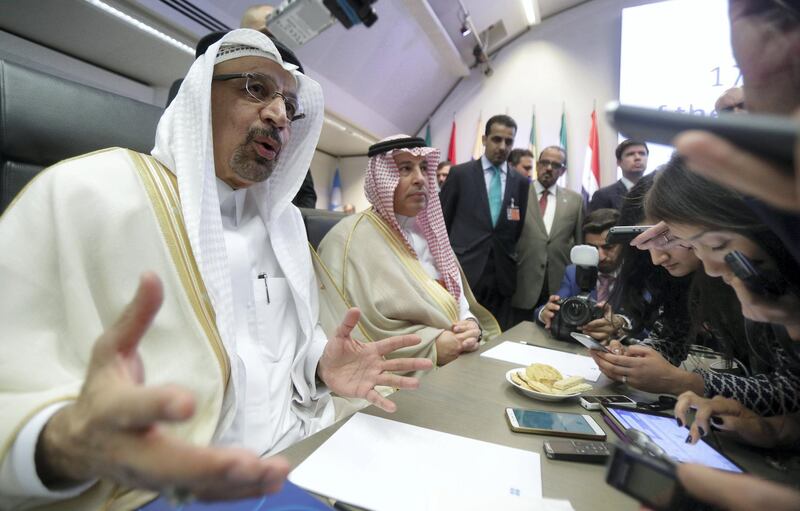Saudi Arabia has confirmed its commitment to the initial public offering of Saudi Aramco, the world's biggest oil producing company, dispelling media reports that the sale was shelved.
But analysts said the the IPO of the firm could be delayed by a couple of years.
“The government remains committed to the IPO of Saudi Aramco at a time of its own choosing when conditions are optimum,” Saudi oil minister Khalid Al Falih said in a statement.
Saudi Aramco, which produces 12.9 per cent of the world’s oil, had whet the appetite of the global financial industry when it said it would list 5 per cent of its shares, in what was hailed to be the world's biggest IPO. Government estimates have valued the company at $2 trillion, which would have priced the IPO at $100 billion. Saudi officials have earlier said the company would aim for a dual listing, one on the local Tadawul, and another on an international exchange. Funds raised from the IPO would in turn be used to fill the coffers of the Public Investment Fund, the kingdom's sovereign wealth fund.
“There is no urgency for an Aramco listing. The company is well capitalised and well-run,” said Hasnain Malik, Dubai-based global head of equity research and strategy at Exotix Capital.
However, higher oil prices as well as Saudi Aramco's ongoing discussions to acquire a major stake in Sabic, the region's biggest chemicals company, have cooled off the rush to list the energy company.
Mr Al Falih cited Aramco’s acquisition of an downstream asset, which is expected to close by end of the year as well as “favourable market conditions” as factors impacting the timeline for the IPO.
The integration of Sabic, which is expected to generate greater efficiencies for both companies, was a “big task” for Aramco this year, noted Mr Malik.
“Sabic’s integration means more complexity and potentially the removal of duplicated cost. This in itself is a big task which will yield more efficiency gains than the listing of a very small stake in Aramco,” he said.
_______________
Read more:
Saudi Aramco pledges continued investment to meet rising oil demand
Saudi Aramco forms $8bn joint venture with Acwa and Air Products
Saudi Aramco and Sabic to build world's largest oil-to-chemicals plant
_______________
Ellen R Wald, president of Transversal Consulting and author of Saudi Inc, noted that Aramco's plans for listing were "unclear" and could well happen in 2019 or perhaps later.
“The [government] statement indicates that there are still matters to be taken care of before the company and the government are ready,” she said.
The acquisition will leave Aramco with less cash on its balance sheet and possibly some debt.
“But it will also have a complementary asset of significant value,” she added.
The acquisition of Sabic comes at a time of significant pivot among regional oil companies towards the manufacture and sale of complex petrochemical products to meet growing demand in Asia.
Saudi Aramco, which recently signed a $5 billion agreement with French oil major Total to develop chemical facilities at the 440,000-barrel-per-day Satorp refinery in Jubail, will look to leverage Sabic's existing capabilities to co-operate in future projects.
The two firms last year signed an agreement to develop a $20bn oil-to-chemicals scheme on the Saudi Red Sea coast, that will see the integration with Aramco's existing refining facilities at Yanbu.
“There is no reason for Aramco and Sabic not to be more co-ordinated, particularly in their domestic operations,” said Mr Malik.
“For example, new downstream projects should be planned on the basis of a co-ordinated decision on access to gas or oil inputs."







